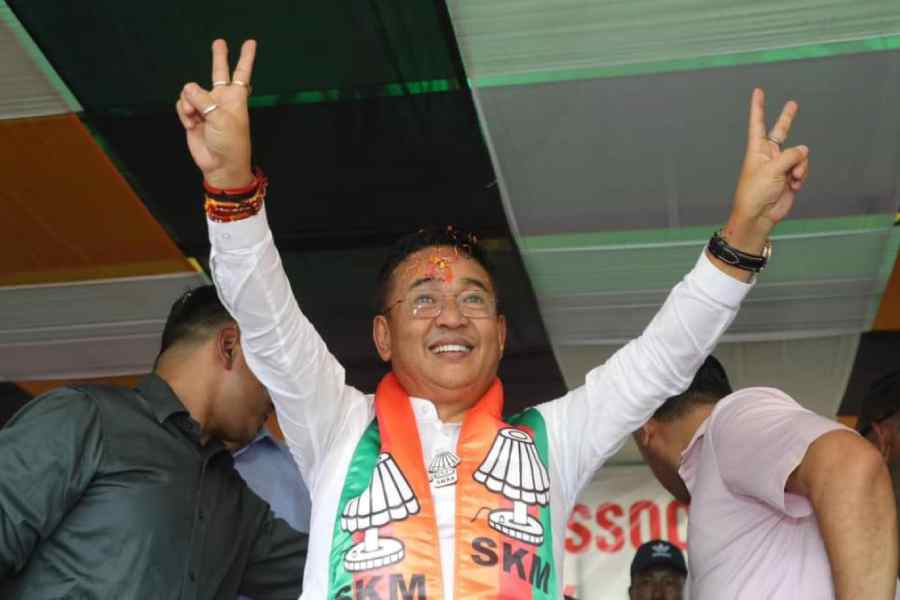There are some interesting areas of convergence between the results of the assembly elections in Arunachal Pradesh and Sikkim. For instance, anti-incumbency — the bugbear of many an incumbent regime — has bitten the dust in both states. The Bharatiya Janata Party retained Arunachal Pradesh by bagging 46 out of 60 seats; incidentally, it won 10 seats uncontested and had a vote share of over 50%. The Sikkim Krantikari Morcha, the BJP's ally at the Centre, was returned to power in the Himalayan state with an even more handsome mandate — the SKM won 31 out of 32 seats. Another shared trait seems to be a yearning for experimentation with relatively new regimes on the part of the electorate along with a concomitant weariness with the established players of the past. For instance, the Congress, which was once a dominant force in the Northeast, has now been reduced to a bit player in Arunachal Pradesh: it won just one seat. Another veteran outfit, the Sikkim Democratic Front, shared the Congress’s fate with an almost empty kitty. An emaciated Opposition, however, does not augur well for the cause of democracy. But some things have remained unchanged. For example, the party in power at the Centre, the BJP, has been rewarded with a rich electoral harvest in Arunachal — a trend that is common in the Northeast. Again, the BJP had relied heavily on defections — a tactic that it employed successfully in the rest of India — to gain a toe hold in both states. The only difference perhaps is that while Arunachal Pradesh had no moral qualms about electing turncoats, Sikkim, where the BJP drew a blank after going it alone, may have had reservations about this modus operandi along with the BJP’s alleged arrogant campaign.
There are even similarities when it comes to the challenges to governance. Being border states, China’s shadow falls heavily on both Itanagar and Gangtok. New Delhi’s current troubled ties with Beijing require both states, with the Centre’s assistance, to keep an eye out for incursions while continuing to invest in physical and defence infrastructure. The other — shared — challenge happens to be the environment. Sikkim and Arunachal Pradesh must strive to find a balance between ecological and economic imperatives. The states are vulnerable to calamities like landslides and floods, phenomena that have been exacerbated by reckless ‘development’ as well as intensifying climate change. The two dispensations must deliberate on whether the thoughtless promotion of dams and hydroelectric power can accentuate the attendant ecological risks. Both governments have their work cut out for them.










